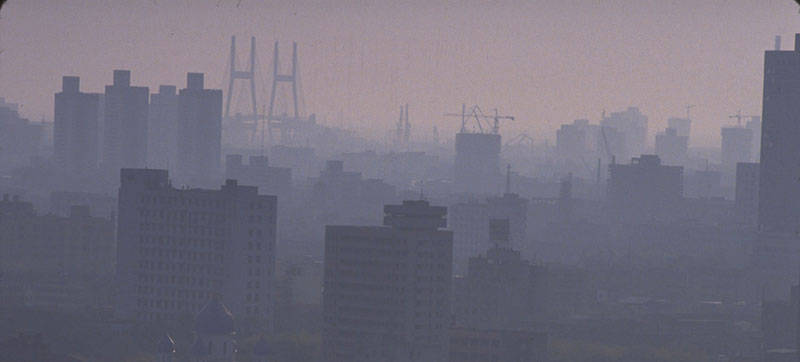 Environment
Environment
Improving air quality ‘key’ to confronting global environmental crises
New York: With environmental events becoming increasingly interconnected, a new global report on air pollution published by the UN Environment Programme (UNEP) on Thursday underscores that improved air quality is “key to tackling the triple planetary crisis of climate change, biodiversity loss, and pollution and waste”.
“Yet, air quality continues to deteriorate despite the increase in laws and regulations seeking to address air pollution”, UNEP chief Inger Andersen said in the foreword to the Global Assessment of Air Pollution Legislation (GAAPL).
Findings on air quality legislation in 194 countries and the European Union (EU), reveal that despite the international movement of pollutants which impact air quality, only one third of the countries studied, have legal mechanisms for managing or addressing transboundary air pollution.
Legal measures
Using Air Quality Guidelines developed by the World Health Organization (WHO), the report examines legal measures for determining whether air quality standards are being met and what procedures exist if they are not.
According to the study, 43 per cent of countries lack a legal definition for air pollution and 31 per cent have yet to adopt legally mandated ambient air quality standards (AAQS).
Moreover, 37 per cent of States do not legally require national air quality monitoring mechanisms, which are critical to understand how air quality affects national populations.
And despite that, air pollution knows no borders, the analysis also shows that only one third of countries studied, have legal mechanisms for managing or addressing transboundary air pollution.
Progress made
While significant challenges remain, the report importantly draws attention to the progress various countries have made, which the UN chief upheld, “can serve as the basis for strong air quality governance systems that protect human health and well-being and address the triple planetary crisis”.
“Many countries now have constitutional provisions that potentially allow for the establishment of rights to clean air in law”, she said. “Information on air quality is a well-established right in many countries and, in various parts of the world, public interest litigation is improving air quality policies”.
Better governance critical
Recognizing that there is no silver bullet to address the air pollution crisis, the report emphasizes that robust air quality governance is critical to attaining air quality standards and public health goals that can be achieved through developing legislation for air quality control, that integrates accountability, enforceability, transparency, and public participation.
Citing “a lack of enforcement capacity” as a key reason for the poor implementation of air quality laws”, the UNEP chief said the assessment was “the start of efforts to assist Member States in implementing pollution reduction measures grounded in science-based, integrated and coherent regulatory frameworks and policies”.
“All countries must raise their ambition on mitigation”, she stated.
Recommendations
The GAAPL provides recommendations to strengthen air quality governance as well as guides countries to effectively address air pollution and contribute to achieving the Sustainable Development Goals (SDGs).
Air quality commitments include a common legal framework globally for AAQS and key regional international legal instruments on air quality, particularly in the EU, which require individual signatory countries to develop relatively robust legal systems of air quality control.
Following this assessment, practical guidance is being developed by UNEP under the Montevideo Environmental Law Programme to expand its assistance to countries to address the air pollution crisis.
Direct technical support to States, involving development and implementation of legal frameworks for air pollution, is also being planned, with complementary capacity-building, including for judges, prosecutors and other enforcement officials.
“The air we breathe is a fundamental public good, and Governments must do more to ensure it is clean and safe”, said Ms. Andersen. “UNEP is committed to expanding its assistance to countries in addressing the pollution crisis, thereby protecting the health and well-being of all.”
Support Our Journalism
We cannot do without you.. your contribution supports unbiased journalism
IBNS is not driven by any ism- not wokeism, not racism, not skewed secularism, not hyper right-wing or left liberal ideals, nor by any hardline religious beliefs or hyper nationalism. We want to serve you good old objective news, as they are. We do not judge or preach. We let people decide for themselves. We only try to present factual and well-sourced news.







